
5 Types of Bank Accounts: Which is Best for Everyday Transactions?

Jarrod Suda
Guide

A writer and editor at Monito, Jarrod is passionate about helping people apply today’s powerful finance technologies to their lives. He brings his background in international affairs and his experiences living in Japan to provide readers with comprehensive information that also acknowledges the local context.
Byron Mühlberg
Reviewer

Monito's Managing Editor, Byron has spent several years writing extensively about financial- and migration-related topics.
Links on this page, including products and brands featured on ‘Sponsored’ content, may earn us an affiliate commission. This does not affect the opinions and recommendations of our editors.
Read moreThe checking account is the best type of account for everyday transactions because you can withdraw money from them easily with a variety of ways, such as bank transfer, debit card, or paper check. Savings accounts, on the other hand, serve the long-term purpose of earning interest on your idle balances.
In this article, we explore the differences between checking vs savings accounts, and introduce you to five important types of bank accounts you should know. As you navigate your financial choices in 2023, we also highlight Chime® as a compelling option for your everyday transaction needs.
We think Chime® offers the best overall checking account in the US for everyday transactions. Chime has no monthly maintenance fees, minimum balances, or opening deposit requirements. You can send electronic fund transfers and peer-to-peer transfers for free from the app. Chime also offers a debit card to withdraw cash from 60,000+ ATMs nationwide.
Checking vs Savings: Which Is Best for Everyday Transactions?
What Are the Main Differences Between Checking and Savings Accounts?
A checking account is primarily used for managing everyday transactions and finances, such as paying bills, receiving your paycheck through direct deposit, and making ATM withdrawals. It offers easy and frequent access to your money.
On the other hand, a savings account serves as a place to build an emergency fund or save for specific financial goals, like a car or a holiday abroad. Savings accounts often provide higher interest rates compared to checking accounts, allowing your money to grow over time. While they offer some access to your funds, there are typically limits on withdrawals (of 6 per month) to encourage long-term saving.
Both account types may have associated fees. Checking accounts often having more transaction-related fees, such as overdraft or ATM fees. Savings accounts may have minimum balance requirements or excess withdrawal fees.
What Is a Checking Account?
Checking accounts are primarily designed to facilitate day-to-day spending. They allow you to write checks, use a debit card, and make electronic transfers to access your funds easily. Here's how checking accounts typically work:
- Interest: While some checking accounts offer interest, it's generally lower compared to savings accounts. The primary focus of checking accounts is accessibility, not earning interest.
- Common Fees: Common fees associated with checking accounts may include a monthly maintenance fee, overdraft fee (when you spend more than your account balance), and out-of-network ATM fees.
- Minimum Balance: Some checking accounts require a minimum balance to avoid monthly maintenance fees. Ensure you meet this requirement to save on bothersome monthly fees.
- Limits on Transfers: Checking accounts typically have no limits on transfers, although you should check with your bank for any company-specific limitations.
Advantages of Checking Accounts:
- Convenience: Checking accounts offer quick and easy access to your funds for day-to-day expenses, making them the best type of account for managing your everyday transactions.
- Payment Options: They provide various payment options, including checks, debit cards, and electronic transfers, making it simple to pay bills and make purchases.
- Safety: Your funds in a checking account are insured up to a certain limit by the FDIC (Federal Deposit Insurance Corporation) for banks or the NCUA (National Credit Union Administration) for credit unions.
What Is a Savings Account?
Savings accounts are meant for storing and growing your savings — not frequent spending. Here's how savings accounts typically work:
- Interest: Savings accounts offer higher interest rates compared to checking accounts. Your bank will pay you a percentage of your account balance monthly or annually as a reward for keeping your money in the account. The more you save and the higher the interest rate, the more interest you'll earn over time.
- Common Fees: Common fees may include a monthly maintenance fee, minimum balance charge (if you dip below the minimum required balance), and a fee for exceeding the monthly withdrawal limit.
- Minimum Balance: Many savings accounts require a minimum balance to avoid fees. To incentivize saving, these minimum balance requirements are typically higher than those set on checking accounts.
- Limits on Transfers: Federal regulations limit certain types of withdrawals or transfers from savings accounts to six per statement cycle to encourage saving.
Advantages of Savings Accounts:
- Interest Earnings: Savings accounts offer a higher interest rate compared to checking accounts, allowing your money to grow over time.
- Safety: Similar to checking accounts, funds in savings accounts are insured by the FDIC or NCUA. In the unlikely case that your bank faces insolvency, your balances will be backed by deposit insurance.
- Long-Term Savings: Savings accounts are well-suited for setting aside cash for future needs or emergencies, providing a safe but accessible place to reliably manage funds.
5 Types of Bank Accounts You Should Know
As we explained above, checking accounts and savings accounts are the most common types of accounts you'll open when you go to a bank. Checking accounts are best for everyday transactions, such as card transactions, domestic bank transfers, and cash withdrawals. Savings accounts are used to keep idle cash for longer periods, and usually earn interest.
However, other types of bank accounts exist to perform different functions. We walk through 5 of the most common bank account types below to help you understand what kind of account you should open next. This list should help you make good use of the financial tools available to you:
1 — Checking Account:
Checking accounts are built for everyday transactions like ACH transfers, debit card transactions, checks, and Bill Pay. Banks sometimes charge fees for everyday services like overdrafts, wire transfers, and ATM usage. International money transfers are generally very expensive, which is why we recommend online specialists as better alternatives instead.
Banks often waive monthly maintenance fees if you meet certain criteria, such as maintaining a minimum balance or having a mortgage with the same bank.
2 — Savings Account:
Savings accounts offer higher interest rates than checking accounts to allow you to accumulate interest on your balances. When searching for a savings account, look for the bank that offers the highest APY rate so you can earn more on your idle balances. Also check if the interest rates compound daily, weekly, monthly, or annually because the more frequent the compounding the better.
Some banks charge monthly fees for these accounts but they can often be waived by maintaining a minimum balance or by meeting other criteria.
3 — Certificate of Deposit (CD):
Certificates of Deposit have fixed terms, which can range from a few months to a few years. While you cannot withdraw funds during this time, these accounts often have even higher interest rates that savings accounts.
The rates of CDs are also fixed, meaning that they do not fluctuate with the market. This provides predictability for your earnings. However, if you withdraw before your term matures, the bank will usually penalize you by taking away some or all of the accrued interest.
4 — Money Market Account (MMA):
Money market accounts offer higher interest rates compared to standard savings or checking accounts. And unlike Certificates of Deposit, money market accounts provide some degree of liquidity by allowing you to access a limited amount of your funds when needed. For example, these accounts often come with a limited number of checks that you can write each month.
However, you will likely need to maintain a much higher minimum balance than checking accounts or savings accounts to avoid monthly fees.
5 — Individual Retirement Accounts (IRAs):
IRAs, or Individual Retirement Accounts, are investment accounts that offer tax advantages if you do not touch them until after you retire. Two types exist in the United States: the Traditional IRA and Roth IRA.
The primary difference between Roth and Traditional IRAs is how they are taxed. You can make tax-deductible contributions to your Traditional IRA but will be taxed later when you withdraw the assets, while Roth IRAs are funded with after-tax dollars but will not be subject to income tax when you withdraw your assets upon retirement.
Traditional IRAs also have mandatory withdrawals at age 72 (as of 2022), whereas Roth IRAs do not. Roth IRAs also do not apply penalties for early withdrawal. Funds withdrawn from a Traditional IRA before age 59½ will typically incur a 10% early withdrawal penalty on top of regular income tax (unless you meet certain exceptions).
Do Checking and Savings Accounts Pay Interest?
Yes, both checking and savings accounts have the potential to pay interest. However, savings accounts typically offer higher interest rates than checking accounts.
The interest you earn on your savings account is referred to as the Annual Percentage Yield (APY), and it's a percentage of your account balance that the bank pays you. The more you save and the higher the APY, the more interest you'll earn. In contrast, checking accounts may offer lower or even no interest, as their primary purpose is to facilitate day-to-day transactions.
Are My Balances in My Checking and Savings Accounts Safe?
Yes, your balances in both checking and savings accounts are safe, provided they are held at a bank insured by the Federal Deposit Insurance Corporation (FDIC) or a credit union insured by the National Credit Union Administration (NCUA).
The FDIC and NCUA are federal agencies that provide insurance coverage for your deposits up to $250,000 per account holder, per institution. This means that even if the bank or credit union were to face financial difficulties, your money is protected up to the insurance limit.
The insurance schemes are set up as membership-based systems where banks or credit unions pay into a fund to collectively finance insurance that safeguards customer deposits. The FDIC and NCUA are separate entities from banks and credit unions, respectively, and the funds are managed independently.
Why Chime is Our Top Choice for Everyday Transactions in 2024
We think Chime's checking account is the ideal choice for everyday transactions in the US. The account charges no monthly maintenance fees, minimum opening deposits, or minimum balance requirements. Plus, the debit card waives foreign transaction fees, making it perfect for your next trip abroad.
Chime is a financial technology company, not a bank. Banking services provided by The Bancorp Bank or Stride Bank, N.A., Members FDIC — giving you deposit insurance from the FDIC on your balances.
Seamless Account Integrations
Chime lets you link up multiple bank accounts to your app for effortless money transfers between them. You can also instantly transfer funds to Chime's high-yield savings and credit builder accounts. With just a penny, you can start earning 2% APY on your savings.
Instant Money Transfers
Chime enables free, instant money transfers to other Chime account holders, and you can use your unique account and routing numbers or your Chime debit card to pay bills. Plus, managing recurring payments is a breeze with the app. You can even instruct the Chime app to send physical checks to specific addresses, saving you time and effort.
While Chime doesn't integrate with Zelle directly, you can link your Chime debit card to your Zelle account for quick bank transfers to friends and family.
Widespread ATM Access
Chime's Visa debit card provides access to a vast network of over 60,000 ATMs nationwide, including popular locations like Walgreens and CVS. While there's a $2.50 fee for out-of-network ATM withdrawals, the extensive network minimizes this inconvenience.
No Overdraft Fees and Get Paid Early
Chime eliminates overdraft fees. You can even qualify for up to $200 in overdraft coverage without extra charges. Plus, when you set up direct deposit with your employer, you can access your paycheck up to two days early with Chime.
With its overall user-friendly design, fee transparency, and innovative features, Chime simplifies your daily financial transactions, making it our top pick for a hassle-free checking account.
Learn more: Read our full in-depth review of Chime for more.
Top Accounts for Digital Everyday Transactions
More Neobank and Fintech Guides on Checking Accounts and Savings Accounts for Convenient Transactions










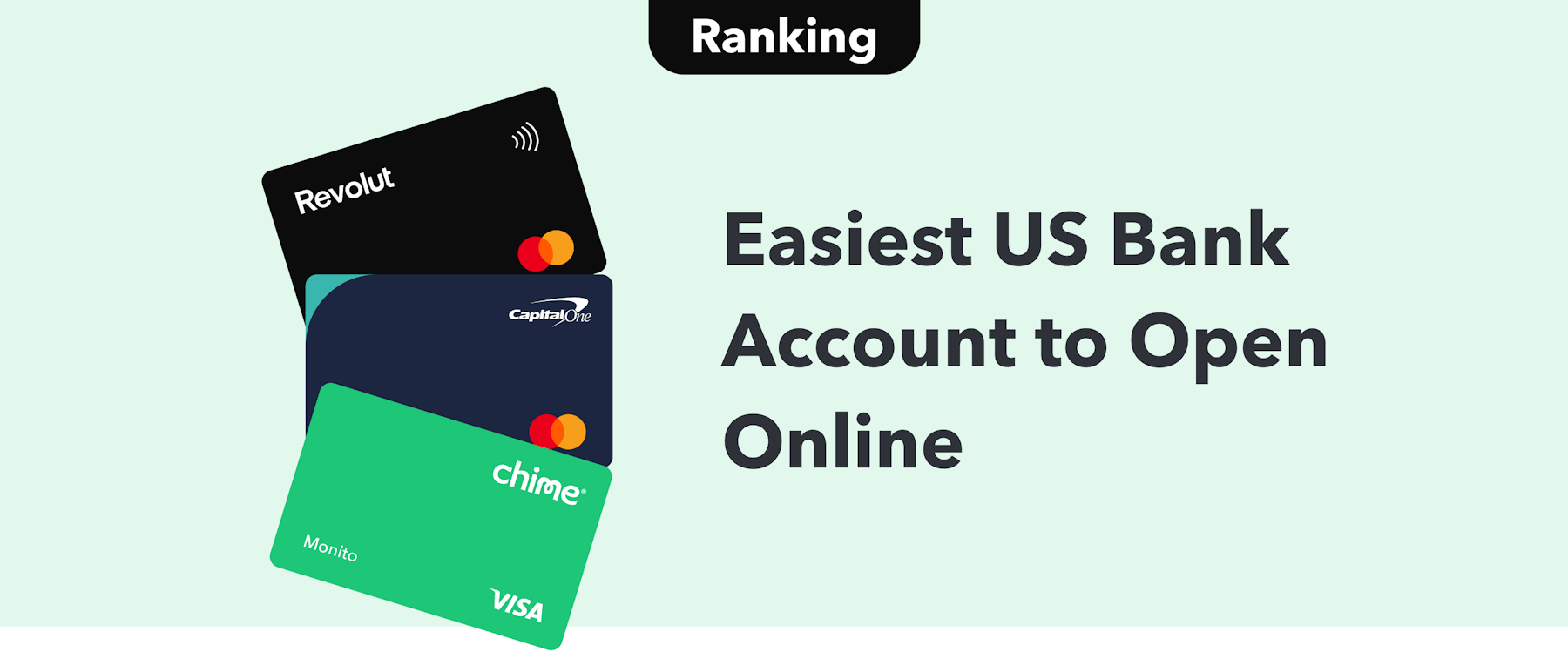
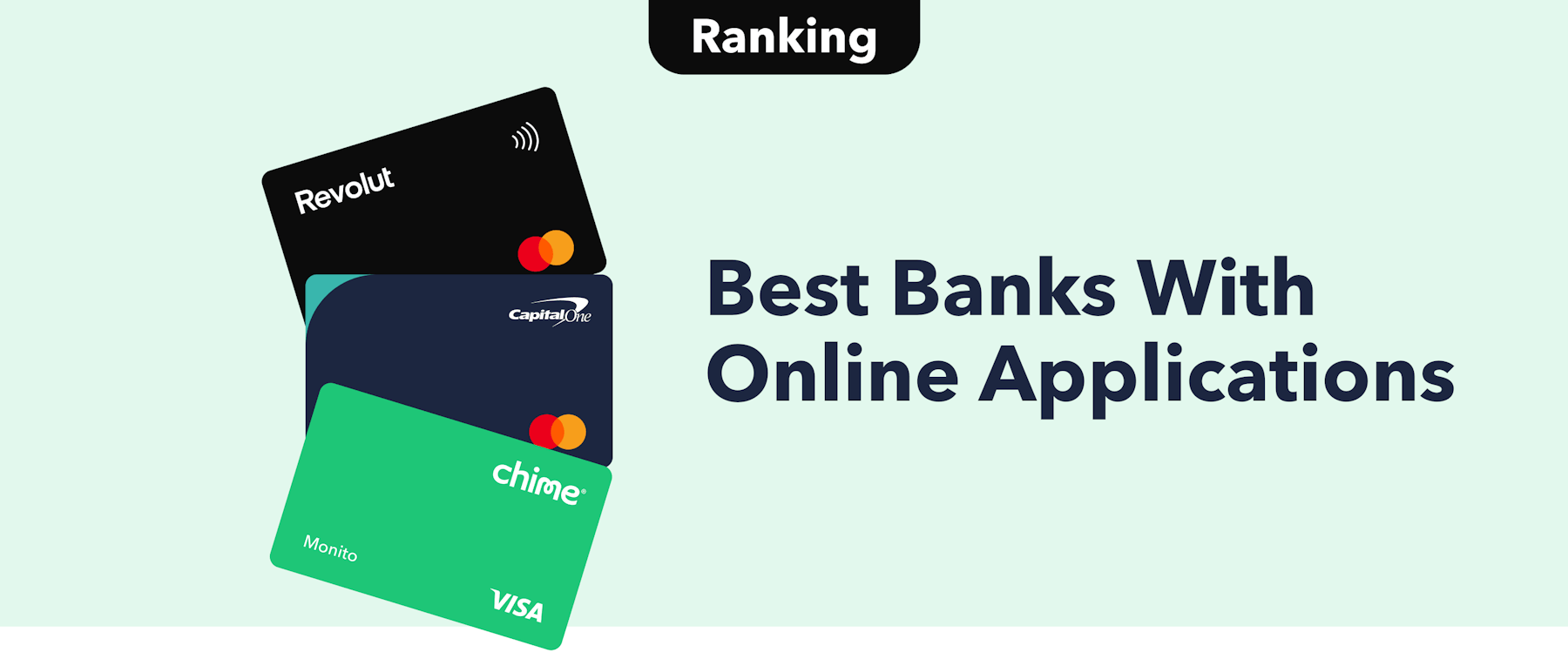
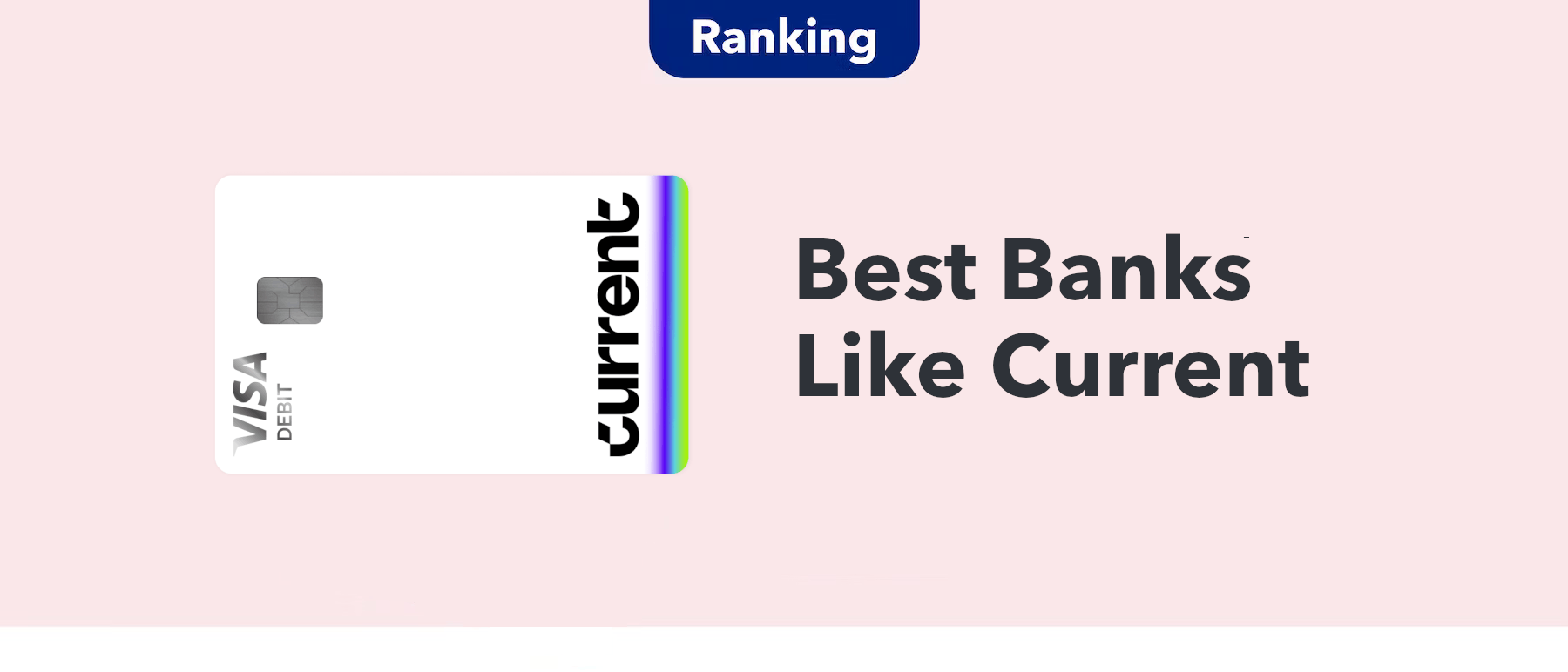
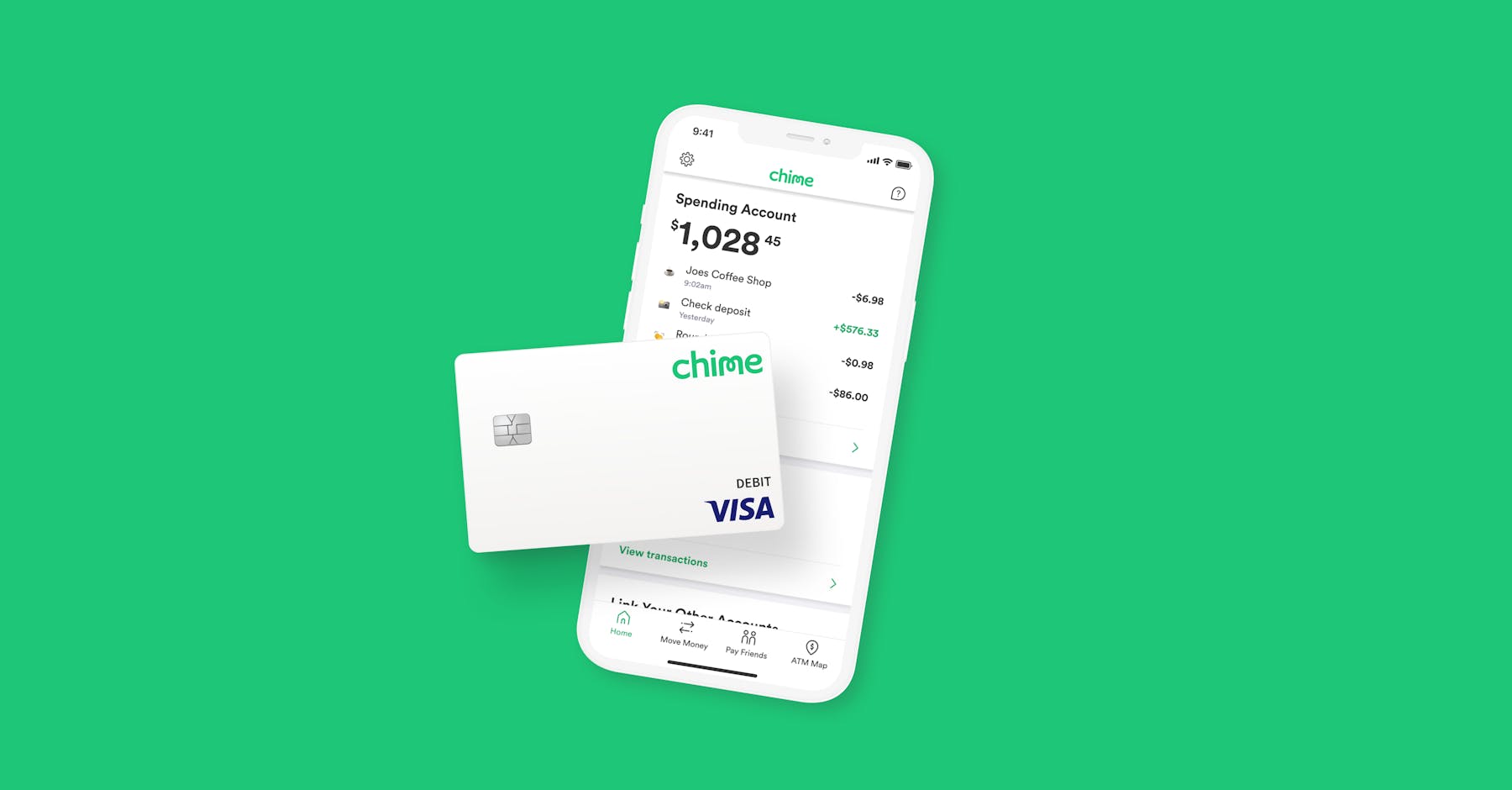



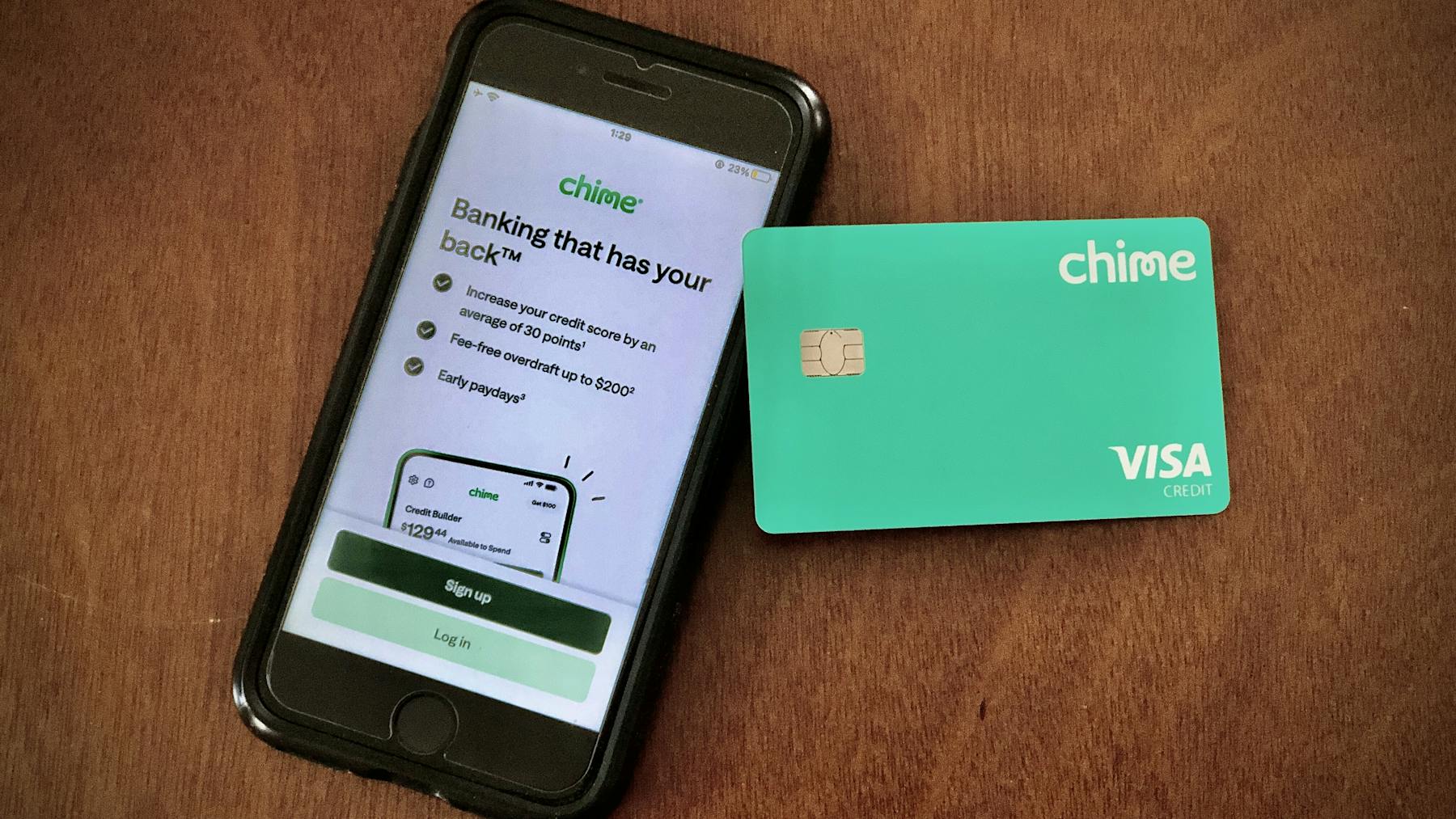
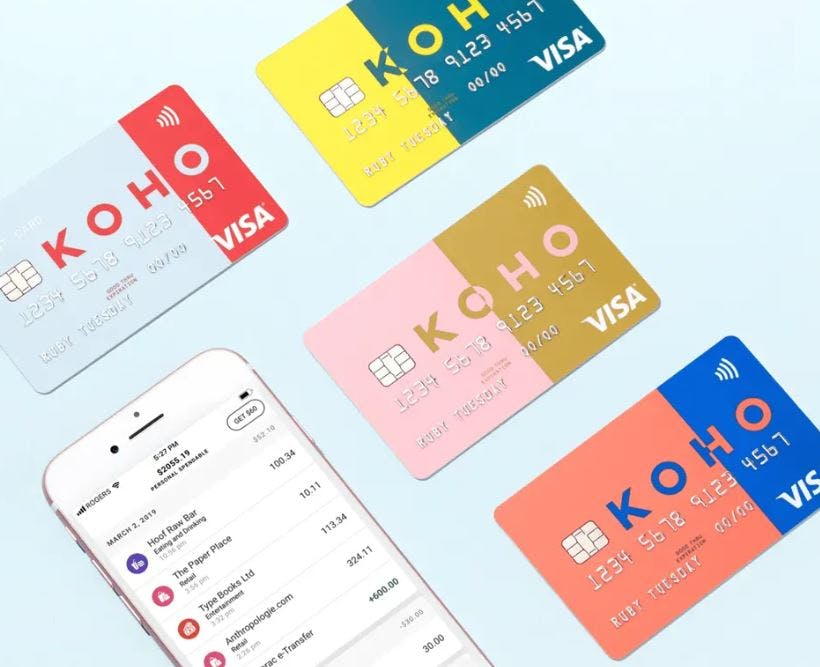
Disclaimers
Chime is a financial technology company, not a bank. Banking services and debit card provided by The Bancorp Bank, N.A. or Stride Bank, N.A.; Members FDIC. Credit Builder card issued by Stride Bank, N.A.
¹ Out-of-network ATM withdrawal and over-the-counter advance fees may apply. See here for details.
² To apply for Credit Builder, you must have received a single qualifying direct deposit of $200 or more to your Chime Checking Account. The qualifying direct deposit must be from your employer, payroll provider, gig economy payer, or benefits payer by Automated Clearing House (ACH) deposit OR Original Credit Transaction (OCT). Bank ACH transfers, Pay Anyone transfers, verification or trial deposits from financial institutions, peer to peer transfers from services such as PayPal, Cash App, or Venmo, mobile check deposits, cash loads or deposits, one-time direct deposits, such as tax refunds and other similar transactions, and any deposit to which Chime deems to not be a qualifying direct deposit are not qualifying direct deposits.
³ The Annual Percentage Yield ("APY") for the Chime Savings Account is variable and may change anytime. The disclosed APY is effective as of September 20, 2023. No minimum balance is required. Must have $0.01 in savings to earn interest.
⁴ On-time payment history can have a positive impact on your credit score. Late payment may negatively impact your credit score. Results may vary.
⁵ SpotMe® on Credit is an optional, no-interest/no-fee overdraft line of credit tied to the Secured Deposit Account available to qualifying members with an active Chime Credit Builder Account. SpotMe on Debit is an optional, no-fee overdraft service attached to the Chime Checking Account available to qualifying members after Visa debit card activation. Both SpotMe on Credit and SpotMe on Debit are sometimes collectively referred to as "SpotMe" or, if you have signed up to use SpotMe with only one account, "SpotMe" means the elected service. To qualify for SpotMe, you must receive $200 or more in qualifying direct deposits to your Chime Checking Account monthly. Qualifying members will be allowed to overdraw their Chime Checking Account and/or Secured Deposit Account (associated with your Chime Credit Builder credit card) up to $20 but may be later eligible for a higher limit of up to $200 or more based on Chime account history, direct deposit frequency and amount, spending activity and other risk-based factors. The SpotMe limit will be displayed within the Chime mobile app and is subject to change at any time, at Chime’s sole discretion. Although Chime does not charge any overdraft fees for SpotMe, there may be out-of-network or third-party fees associated with ATM transactions. SpotMe Debit Terms and Conditions and SpotMe on Credit Terms and Conditions.
Why Trust Monito?
You’re probably all too familiar with the often outrageous cost of sending money abroad. After facing this frustration themselves back in 2013, co-founders François, Laurent, and Pascal launched a real-time comparison engine to compare the best money transfer services across the globe. Today, Monito’s award-winning comparisons, reviews, and guides are trusted by around 8 million people each year and our recommendations are backed by millions of pricing data points and dozens of expert tests — all allowing you to make the savviest decisions with confidence.
Monito is trusted by 15+ million users across the globe.
Monito's experts spend hours researching and testing services so that you don't have to.
Our recommendations are always unbiased and independent.




